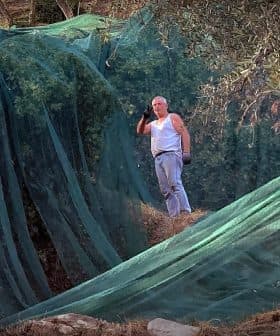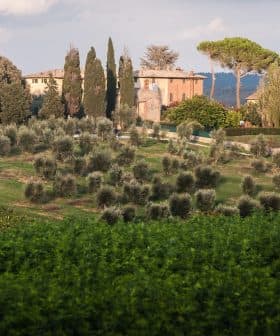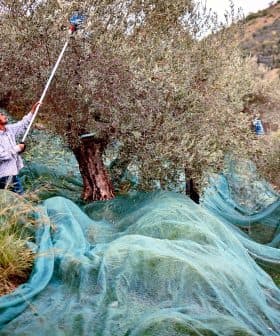Signs of Life Among Puglia’s Xylella-Ravaged Groves

Olive growers in Puglia are celebrating a successful harvest from Xylella-resistant trees, such as the Favolosa cultivar, which are helping to revive the region’s olive oil production that has been devastated by the disease. The Favolosa cultivar, descended from the Frantoio variety, is immune to Xylella fastidiosa and has the potential to restore bountiful olive oil production in regions affected by the disease, according to the Italian Farmers Confederation.
Olive growers are celebrating “a sign of hope and rebirth” after harvesting healthy olives from trees recently reintroduced to the Xylella fastidiosa-ravaged region of Puglia.
Farmers from Casarano, a commune located close to Lecce at the heel of Italy’s boot, have harvested olives from their two-year-old trees belonging to the Favolosa cultivar (or Fs-17).
We estimate that for every hectare of (Favolosa) olive trees, farmers could harvest every year, in the period of full fruit ripening, up to one ton of olives.
“Due to the bad weather, we are harvesting at most 10 percent of the true potential of these young trees, but [this harvest has been] a great success compared to the six or seven years that it would have taken our Xylella-hit traditional cultivars, such as Cellina and Ogliarola, to achieve the same results,” local farmer Cosimo Primiceri told Italian daily Corriere della Sera.
Primiceri was one of the first to plant the Xylella-resistant cultivar in this part of Puglia, an area in which traditional olive groves have been wiped out by the disease.
See Also:Xylella Fastidiosa UpdatesFs-17 is not a common cultivar. It was discovered and patented by the Italian National Research Council (CNR) more than 30 years ago.
The cultivar is descended from the Frantoio variety and was bred for medium to high-density cultivation. The Favolosa trees usually yield high numbers of olives each year and the fruits ripen early. The variety is also self-fertile, which allows it to grow well in monovarietal orchards.
In addition to these selected qualities, Italian researchers have also discovered that the cultivar is immune to the highly deadly and contagious Xylella fastidiosa.
See Also:Extraordinary Plan to Revitalize Olive Trees in PugliaAccording to the Italian Farmers Confederation (CIA), the Favolosa variety can restore formerly bountiful regions of olive oil production back to their full potential.
“We estimate that for every hectare (2.5 acres) of olive trees, farmers could harvest every year, in the period of full fruit ripening, up to one ton of olives,” the CIA said. “[These olives] are destined to give birth to an excellent extra virgin olive oil, which is already widely appreciated by consumers for its organoleptic properties.”
The Favolosa cultivar is currently grown in Puglia, Umbria and Sicily. Outside of Italy, Fs-17 is also grown in the United States, Spain, Australia, South Africa, Chile and Argentina.
See Also:Puglia Defines Protocol for Replacing Affected TreesAmong the many farmers and producer associations celebrating this landmark harvest in Casarano was the national consortium, Italia Olivicola.
According to recently-published research from the organization, since the discovery of Xylella fastidiosa in the Gallipoli area in 2013, the disease has quickly spread both north and south, damaging five million trees – almost one-quarter of all the area’s olive trees – in the provinces of Lecce, Brindisi and Taranto.
Italia Olivicola said that the average harvest for these provinces has fallen by 29,000 tons each year as a result of Xylella fastidiosa, decreasing overall Italian olive oil production by roughly 10 percent.









